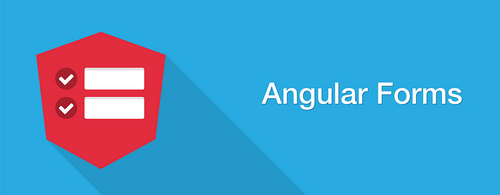In the dynamic world of web development, AngularJS has emerged as a powerful tool for building robust and interactive web applications. When it comes to creating user-friendly forms, ensuring data integrity is paramount, especially with sensitive information like email addresses. This comprehensive guide will explore the intricate world of unique email validation in AngularJS, providing you with the knowledge and skills to implement this critical feature effectively.
Understanding Unique Email Validation
Unique email validation in AngularJS refers to the process of ensuring that each email address submitted through a form is unique within a specified context, such as a database or a set of existing values. This validation helps prevent duplicate entries and enhances the overall user experience by providing real-time feedback to users during data entry.
Why Unique Email Validation Matters
Unique email validation serves several crucial purposes:
Data Integrity: It ensures that your database or data repository remains free from duplicate or redundant email addresses.
User Experience: By providing instant feedback, it helps users quickly identify whether the email they intend to use is available or already in use.
Security: Preventing duplicate emails can enhance the security of your application by reducing the risk of fraudulent or malicious activities.
Now, let's delve into the methods and best practices for implementing unique email validation in AngularJS.
Approaches to Implement Unique Email Validation in AngularJS
Client-Side Validation: This approach involves checking the uniqueness of an email address on the client side before submitting the form. While it provides immediate feedback to users, it may not be foolproof against determined adversaries.
Server-Side Validation: Server-side validation is considered more secure and reliable. It involves sending the email address to the server, where it's checked against existing records in the database. The server then responds with a validation result.
Combination of Both: For the best of both worlds, you can combine client-side and server-side validation. This approach provides real-time feedback to users and adds an extra layer of security on the server.
Implementing Client-Side Unique Email Validation
Client-side validation can be implemented using AngularJS directives. Here's a simplified example:
app.directive('uniqueEmail', function ($http) {
return {
require: 'ngModel',
link: function (scope, element, attrs, ngModel) {
ngModel.$asyncValidators.unique = function (modelValue) {
return $http.post('/api/check-unique-email', { email: modelValue })
.then(function (response) {
if (!response.data.isUnique) {
return $q.reject();
}
});
};
}
};
});
In this example, the directive uniqueEmail checks if the email address is unique by making an asynchronous request to a server endpoint.
Implementing Server-Side Unique Email Validation
Server-side validation is the most secure way to ensure email uniqueness. Here's a simplified Node.js and Express example:
app.post('/api/check-unique-email', function (req, res) {
const requestedEmail = req.body.email;
// Query your database to check if the email exists
const isEmailUnique = checkIfEmailIsUnique(requestedEmail);
res.json({ isUnique: isEmailUnique });
});
In this example, the server receives the email address from the client, queries the database, and responds with whether the email is unique or not.
Combining Client-Side and Server-Side Validation
To provide real-time feedback and enhance security, you can combine client-side and server-side validation. The client-side validation can offer instant feedback to the user, while the server-side validation ensures data integrity.
Common Questions About Unique Email Validation in AngularJS
Q1: Is client-side validation enough for unique email validation?
A1: While client-side validation provides immediate feedback, it's essential to complement it with server-side validation to ensure data integrity and security.
Q2: What is the best practice for handling unique email validation errors?
A2: When a duplicate email is detected, it's best to provide clear error messages and suggestions to users on how to proceed.
Q3: Can I use third-party libraries for unique email validation in AngularJS?
A3: Yes, you can leverage third-party libraries or APIs to streamline unique email validation in your AngularJS applications.
Conclusion
Implementing unique email validation in AngularJS is a crucial step in maintaining data integrity and enhancing the user experience. Whether you choose client-side, server-side, or a combination of both validation methods, it's essential to prioritize the security and reliability of your application's email handling. By following best practices and considering user feedback, you can ensure that your email validation process is robust and user-friendly.



